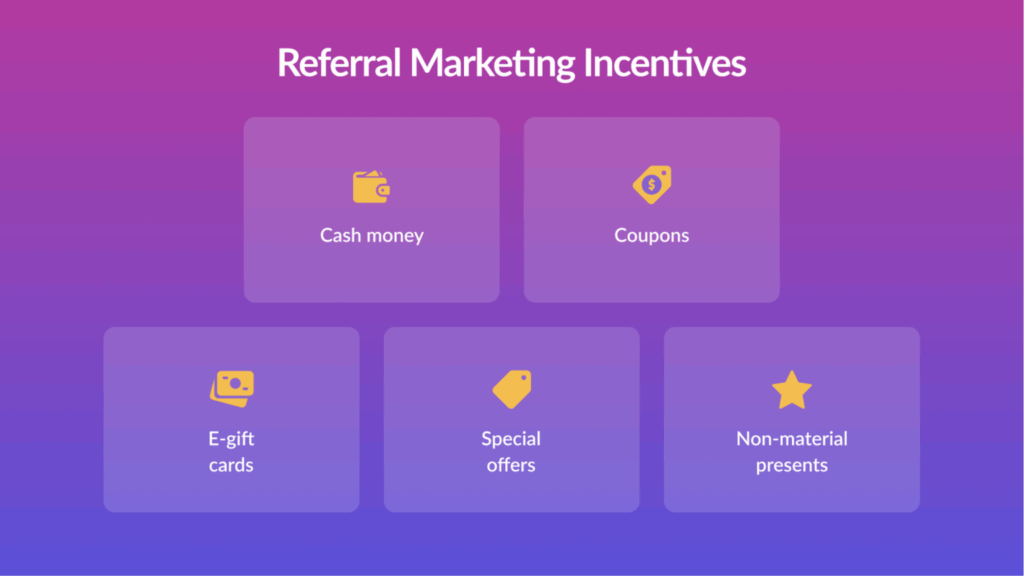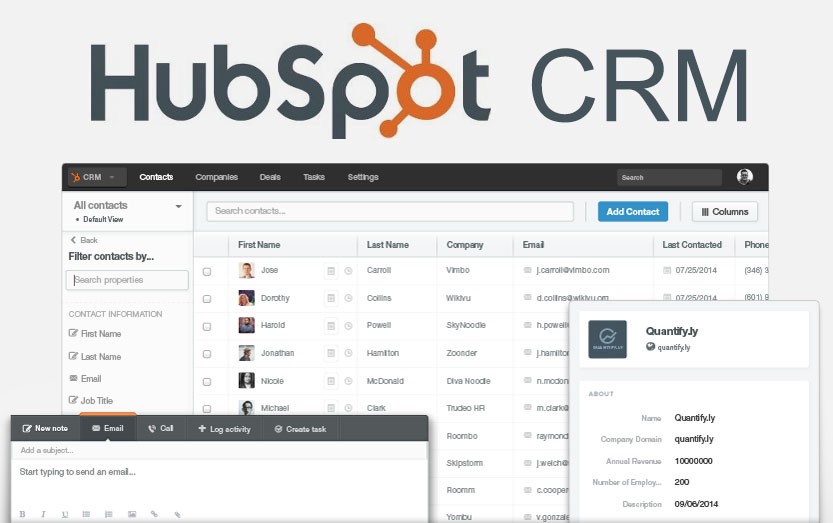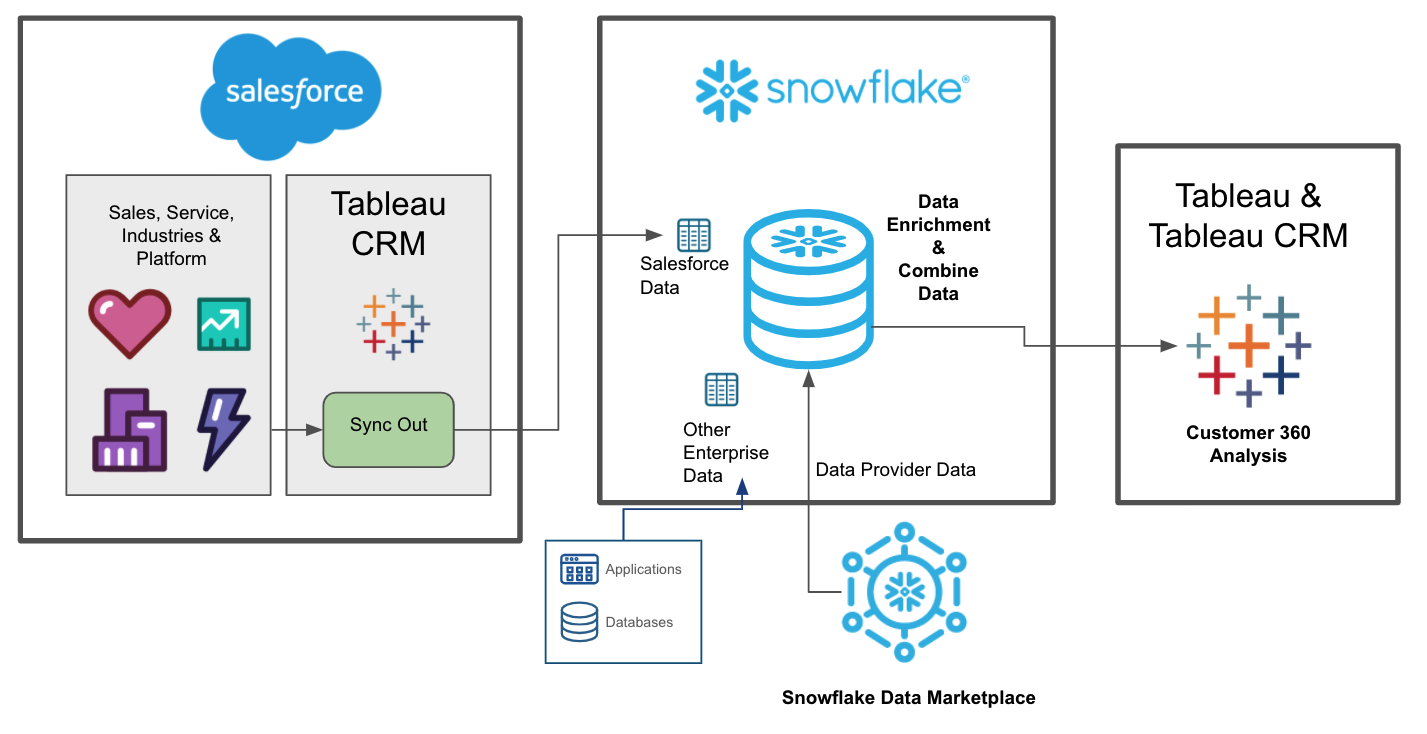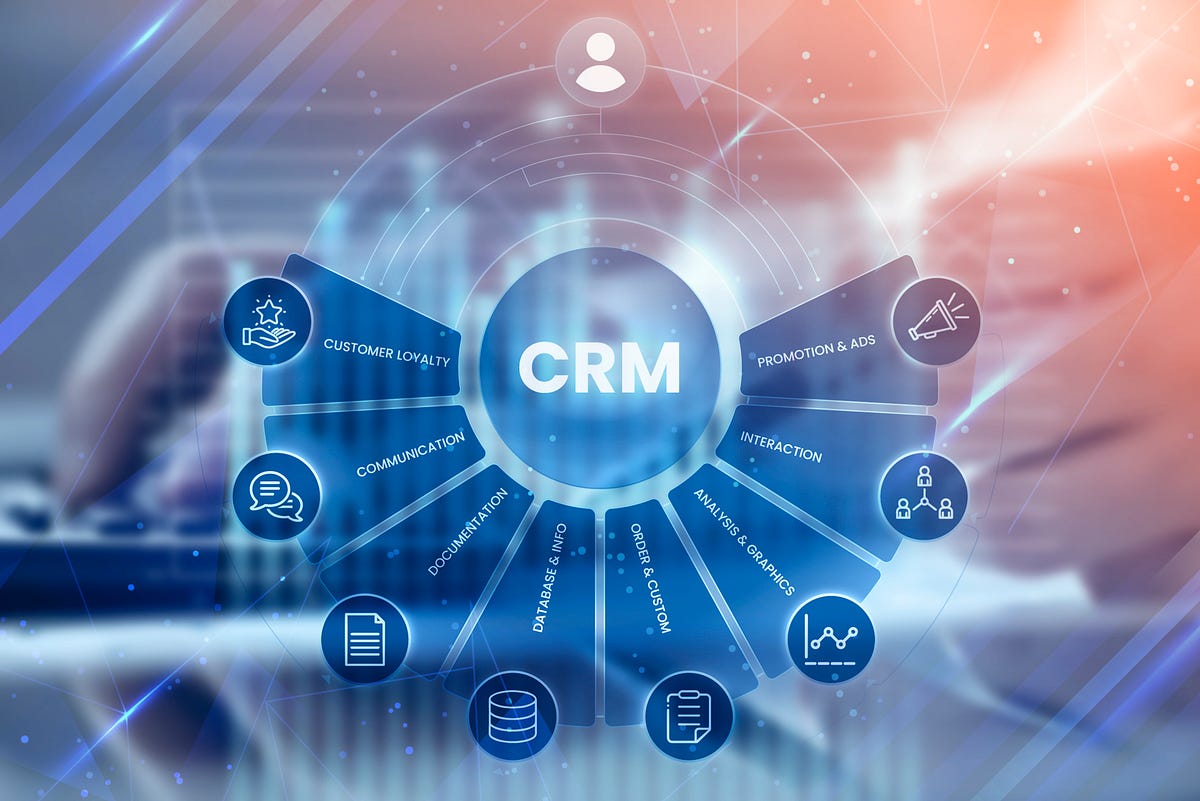Boost Your Business: Mastering CRM, Referral Marketing, and the Synergy That Drives Growth

Boost Your Business: Mastering CRM, Referral Marketing, and the Synergy That Drives Growth
In the ever-evolving landscape of business, staying ahead requires more than just a good product or service. It demands a deep understanding of your customers and a strategic approach to acquiring new ones. Two powerful tools in this arsenal are Customer Relationship Management (CRM) and referral marketing. When combined, they create a synergistic effect that can propel your business to new heights. This article dives deep into these two strategies, exploring their individual strengths and, most importantly, how to leverage them together for exponential growth.
Understanding the Power of CRM
CRM, or Customer Relationship Management, is more than just software; it’s a philosophy, a strategy, and a set of technologies that help businesses manage and analyze customer interactions and data throughout the customer lifecycle. At its core, CRM aims to improve business relationships with customers, driving customer loyalty and retention. Think of it as the central nervous system of your customer interactions.
The Core Components of CRM
A robust CRM system typically includes several key components:
- Contact Management: This is where you store and organize all your customer data, including contact information, interaction history, purchase history, and more.
- Sales Force Automation (SFA): SFA tools help automate sales processes, track leads, manage opportunities, and forecast sales.
- Marketing Automation: This component allows you to automate marketing campaigns, personalize communications, and nurture leads through the sales funnel.
- Customer Service and Support: CRM systems often include features for managing customer service inquiries, resolving issues, and providing support.
- Analytics and Reporting: CRM provides valuable insights into customer behavior, sales performance, and marketing effectiveness through data analysis and reporting tools.
The Benefits of Implementing a CRM System
The benefits of implementing a CRM system are numerous and far-reaching. Some of the most significant advantages include:
- Improved Customer Relationships: By centralizing customer data and providing a 360-degree view of each customer, CRM helps you understand their needs and preferences, enabling you to provide more personalized and relevant experiences.
- Increased Sales: CRM helps sales teams manage leads more effectively, track opportunities, and close deals faster. It also provides valuable insights into sales performance, enabling you to identify areas for improvement.
- Enhanced Marketing Effectiveness: CRM allows you to segment your audience, personalize marketing campaigns, and track the results of your efforts, leading to higher conversion rates and a better return on investment (ROI).
- Improved Customer Service: CRM provides customer service teams with the tools they need to resolve issues quickly and efficiently, leading to higher customer satisfaction and loyalty.
- Increased Efficiency: CRM automates many manual tasks, freeing up your team to focus on more strategic initiatives.
- Data-Driven Decision Making: CRM provides valuable data and analytics that can be used to make informed decisions about sales, marketing, and customer service strategies.
Unveiling the Potential of Referral Marketing
Referral marketing is a powerful, often underestimated, strategy that leverages the power of word-of-mouth to acquire new customers. It’s based on the simple premise that people trust recommendations from people they know and respect. When a satisfied customer refers your business to a friend or family member, that referral carries significant weight, often leading to higher conversion rates and lower customer acquisition costs (CAC).
How Referral Marketing Works
The core mechanics of referral marketing are relatively straightforward:
- Identify Loyal Customers: The foundation of any successful referral program is a base of satisfied customers who are likely to recommend your business.
- Incentivize Referrals: Offer incentives to both the referrer and the referred customer to encourage participation. These incentives can take many forms, such as discounts, free products, or exclusive access.
- Make it Easy to Refer: Provide your customers with easy-to-use referral tools, such as unique referral links, shareable social media posts, or pre-written email templates.
- Track Referrals: Implement a system to track referrals and measure the success of your program. This will help you identify what’s working and what needs improvement.
- Follow Up: Make sure to follow up with both the referrer and the referred customer to thank them for their participation and provide excellent customer service.
The Advantages of Referral Marketing
Referral marketing offers a multitude of benefits, making it an attractive strategy for businesses of all sizes:
- High Conversion Rates: Referrals often have higher conversion rates than other marketing channels because they come with a built-in level of trust.
- Lower Customer Acquisition Costs: Referral marketing can be significantly more cost-effective than traditional marketing methods.
- Increased Customer Loyalty: Referral programs can foster a sense of community and loyalty among your customers.
- Improved Brand Awareness: Referrals can help to increase brand awareness and reach a wider audience.
- Targeted Audience: Referrals often reach a targeted audience, as people tend to recommend businesses to people they believe will benefit from them.
The Dynamic Duo: CRM and Referral Marketing in Harmony
While CRM and referral marketing are powerful strategies on their own, their true potential is unlocked when they are combined. Integrating these two approaches creates a powerful engine for growth, supercharging your customer acquisition and retention efforts.
Integrating CRM with Referral Marketing: A Step-by-Step Guide
Here’s how to seamlessly integrate your CRM system with your referral marketing program:
- Identify Your Best Customers: Use your CRM data to identify your most loyal and engaged customers. These are the individuals most likely to refer your business. Look for customers with high purchase frequency, high customer lifetime value (CLTV), and positive feedback.
- Segment Your Audience: Segment your customer base within your CRM to target specific groups with tailored referral offers. For example, you might offer a higher incentive to customers with a higher CLTV.
- Automate Referral Invitations: Use your CRM’s marketing automation features to send personalized referral invitations to your identified loyal customers. Trigger these invitations based on specific events, such as a recent purchase, a positive customer service interaction, or a milestone anniversary with your company.
- Track Referrals Within Your CRM: Integrate your referral program with your CRM to track referrals and their corresponding customer data. This will allow you to monitor the performance of your referral program, identify successful referrers, and measure the ROI of your efforts.
- Personalize Referral Communications: Use your CRM data to personalize your referral communications. Address customers by name, reference their past purchases, and tailor your messaging to their individual needs and preferences.
- Reward Referrers and Referred Customers: Automatically reward both the referrer and the referred customer within your CRM. This could involve applying discounts, issuing gift cards, or providing access to exclusive content.
- Analyze and Optimize: Regularly analyze your CRM data to assess the performance of your referral program. Identify which referral offers are most effective, which customers are most likely to refer, and which channels are driving the most referrals. Use this data to optimize your program for maximum impact.
Real-World Examples of CRM and Referral Marketing Synergy
Let’s look at some practical examples of how businesses are successfully leveraging the power of CRM and referral marketing:
- E-commerce Retailer: An online clothing retailer uses its CRM to identify customers who have made multiple purchases and have a high average order value. They then automatically send these customers personalized referral invitations, offering them a discount on their next purchase for each friend they refer who makes a purchase. The CRM tracks the referrals and automatically applies the discounts.
- Software-as-a-Service (SaaS) Company: A SaaS company uses its CRM to track customer usage and engagement. They identify customers who are highly engaged with their product and offer them a referral bonus for each new customer they bring on board. The CRM automatically tracks the referrals and credits the referrer’s account.
- Local Service Business: A local landscaping company uses its CRM to track customer satisfaction and identify customers who have provided positive reviews. They then send these customers personalized referral invitations, offering them a discount on their next service for each friend they refer. The CRM tracks the referrals and manages the discounts.
Key Strategies for Maximizing Results
To ensure the success of your CRM and referral marketing efforts, consider these key strategies:
- Choose the Right CRM System: Select a CRM system that meets your specific business needs and integrates seamlessly with your existing marketing tools. Look for features such as marketing automation, lead tracking, and reporting capabilities.
- Design an Attractive Referral Program: Create a referral program that offers compelling incentives to both referrers and referred customers. Make sure the incentives are relevant to your target audience and aligned with your brand.
- Make it Easy to Participate: Make it as easy as possible for your customers to participate in your referral program. Provide them with simple, user-friendly referral tools, such as unique referral links and shareable social media posts.
- Personalize Your Communications: Use your CRM data to personalize your referral communications. Address customers by name, reference their past purchases, and tailor your messaging to their individual needs and preferences.
- Track and Measure Your Results: Regularly track and measure the performance of your CRM and referral marketing efforts. Analyze your data to identify what’s working and what needs improvement.
- Provide Excellent Customer Service: Ensure that you provide excellent customer service to both referrers and referred customers. This will help to build trust and encourage repeat referrals.
- Continuously Optimize: Continuously optimize your CRM and referral marketing strategies based on your data and insights. Experiment with different offers, messaging, and channels to maximize your results.
Overcoming Challenges and Pitfalls
While the combination of CRM and referral marketing can be incredibly powerful, it’s important to be aware of potential challenges and pitfalls:
- Data Privacy Concerns: Ensure that you comply with all relevant data privacy regulations, such as GDPR and CCPA, when collecting and using customer data. Be transparent with your customers about how you are using their data and provide them with the ability to opt-out.
- Incentive Fatigue: Be mindful of incentive fatigue. If you offer the same incentives repeatedly, customers may become less motivated to participate. Regularly refresh your incentives and offer new and exciting rewards.
- Fraudulent Referrals: Implement measures to prevent fraudulent referrals, such as verifying the identity of new customers and monitoring for suspicious activity.
- Lack of Integration: Ensure that your CRM and referral marketing tools are properly integrated. A lack of integration can lead to data silos, manual processes, and a lack of visibility into your results.
- Poor Customer Experience: Avoid creating a poor customer experience. Ensure that your referral program is easy to understand and that your customers receive timely and helpful support.
The Future of CRM and Referral Marketing
The future of CRM and referral marketing is bright, with exciting new trends and technologies emerging:
- Artificial Intelligence (AI): AI is being used to personalize customer experiences, automate marketing campaigns, and predict customer behavior. AI-powered CRM systems can analyze vast amounts of data to identify the best customers to target with referral offers and optimize the performance of your referral program.
- Mobile-First Strategies: With the increasing use of mobile devices, businesses are focusing on mobile-first CRM and referral marketing strategies. This includes creating mobile-friendly referral tools and optimizing their CRM systems for mobile access.
- Hyper-Personalization: Businesses are moving towards hyper-personalization, tailoring their communications and offers to each individual customer’s needs and preferences. CRM systems are playing a key role in enabling hyper-personalization.
- Focus on Customer Experience: Customer experience is becoming increasingly important. Businesses are focusing on creating seamless and engaging customer experiences across all touchpoints, including the referral process.
- Integration with Social Media: CRM and referral marketing are increasingly integrated with social media platforms. Businesses are using social media to promote their referral programs, track referrals, and engage with their customers.
Conclusion: Harnessing the Power of Synergy
In conclusion, CRM and referral marketing are two powerful strategies that can dramatically boost your business’s growth. When you integrate these two approaches, you create a synergistic effect that can drive customer acquisition, increase customer loyalty, and improve your overall ROI. By understanding the core components of CRM, crafting a compelling referral program, and implementing the integration strategies outlined above, you can unlock the full potential of these powerful tools and propel your business towards success. The future of business lies in understanding your customers, providing exceptional experiences, and leveraging the power of word-of-mouth. Embrace the synergy of CRM and referral marketing, and watch your business flourish.




